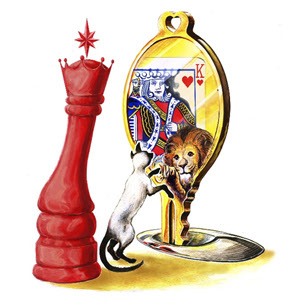
Strategies
. . . The Magic Key
Relationships
Strategies to Thrive
Relationships are the great equalizer for people regardless of their background. It is a place where each of us can express our highest values and commit to something greater than ourselves no matter our geography or heritage.
We begin our relationships with an excitement about the opportunity to be part of an environment that is positive and enriches us emotionally.
Unfortunately, that excitement fails each of us, at one time or other, when the complexities of our “core strategies” leaves our own needs unmet. Let me explain.
Love, alone, never guarantees us a fulfilling relationship. In fact, many couples who separate, or of the 50% who divorce still affirm a deep love for one another.
Have you ever loved someone you could no longer be around?
Still, love is about the only emotional need we associate or value with relationships. I am saying that there are other emotional needs that must also be satisfied. If we don’t recognize what they are or more importantly how to satisfy them, the emotional cost to our relationship will be high.
Like love, these other needs are universal and we can learn to recognize how important they are for everyone. The needs by themselves are not difficult to understand or recognize. We are all aware that people enjoy to experience things like “being deeply understood, appreciated, validated, feeling like we matter or are important.”
The important deeper understanding, is how and why we each value or prefer the different needs intensity and method.
At a very young age we learn which emotional needs to value and unconsciously we develop a “core strategy” to satisfy these needs.
One good example that most of us will recognize, is when a youngster more or less unintentionally does something entertaining or funny that amuses the entire family. Doing this funny entertaining thing may immediately bring him laughter and connection with everyone in the room, leading him to feel loved, validated, and important. Someone may even comment that “you’re quite the comedian”. In his mind, he can easily associate that being a comedian feels good and satisfies his needs.
Having this effective shortcut to satisfy his needs, he may decide he is a comedian and start to invest in this core strategy by being the class clown or otherwise adding value by bringing humor to various situations.
Jim Carrey’s biography follows this pattern exactly.
Our core strategies are meant to meet our needs, and if we associate our needs being met by being funny like Jim Carrey, or creating cool new technologies people can’t live without like Steve Jobs, we will naturally behave in line with that association.
Our core strategies have the greatest potential for conflict in intimate relationships where someone’s commitment to “creating cool new technologies people can’t without” may interfere with family time or other things important to relationships. We see this all the time in relationships where someone believes they need to be a certain way, yet, the action they are taking which they believe is helpful, is actually causing division.
Besides constructive strategies, someone may develop a belief that being demanding or complaining will lead to their needs being met. This may cause them to complain or demand in a most situations. This may be useful at work but poison in their intimate relationship.
When we understand our core strategies, we can evaluate them from a strength finder position and use our core strategies to reach our higher values and aspirations by creating that positive environment we knew we could have when we started our relationship.







